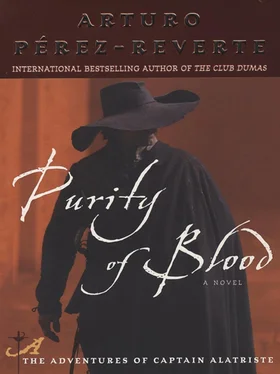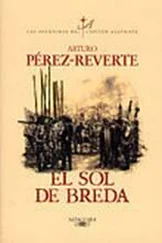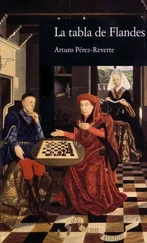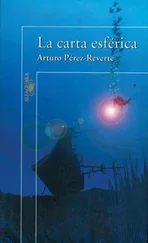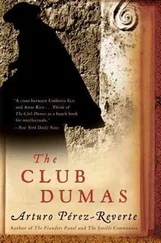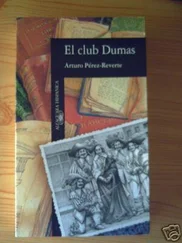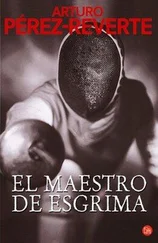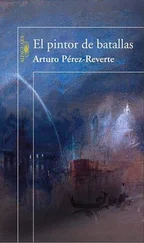Arturo Pérez-Reverte - Purity of Blood
Здесь есть возможность читать онлайн «Arturo Pérez-Reverte - Purity of Blood» весь текст электронной книги совершенно бесплатно (целиком полную версию без сокращений). В некоторых случаях можно слушать аудио, скачать через торрент в формате fb2 и присутствует краткое содержание. Жанр: Старинная литература, на английском языке. Описание произведения, (предисловие) а так же отзывы посетителей доступны на портале библиотеки ЛибКат.
- Название:Purity of Blood
- Автор:
- Жанр:
- Год:неизвестен
- ISBN:нет данных
- Рейтинг книги:3 / 5. Голосов: 1
-
Избранное:Добавить в избранное
- Отзывы:
-
Ваша оценка:
- 60
- 1
- 2
- 3
- 4
- 5
Purity of Blood: краткое содержание, описание и аннотация
Предлагаем к чтению аннотацию, описание, краткое содержание или предисловие (зависит от того, что написал сам автор книги «Purity of Blood»). Если вы не нашли необходимую информацию о книге — напишите в комментариях, мы постараемся отыскать её.
Purity of Blood — читать онлайн бесплатно полную книгу (весь текст) целиком
Ниже представлен текст книги, разбитый по страницам. Система сохранения места последней прочитанной страницы, позволяет с удобством читать онлайн бесплатно книгу «Purity of Blood», без необходимости каждый раз заново искать на чём Вы остановились. Поставьте закладку, и сможете в любой момент перейти на страницу, на которой закончили чтение.
Интервал:
Закладка:
Poet, swordsman, and highly celebrated wit at court, don Francisco was also a gallant man who enjoyed a reputation among the ladies. Stoic, lucid, caustic, courageous, elegant even with his limp, he was a man of goodwill despite his hot temper, generous with his friends and unyielding to his enemies. He could dispatch an adversary as easily with two quatrains as with a duel on de la Vega hill, enchant a lady with genteel courtesy and a sonnet, or surround himself with the philosophers, academicians, and learned men who treasured his entertaining witticisms and his company. The good don Miguel de Cervantes—the greatest genius of all time, no matter how those English heretics chirp on about their Shakespeare—had been seated at God’s right hand seven years ago when he had put his foot in the stirrup and given up his soul to the one who gave it to him. But before he died, even Cervantes had called don Francisco an excellent poet and a compleat caballero in these famous verses:
The scourge of mindless poets, he will at dagger point drive from Parnassus all the evils we fear will o’ertake us.
That afternoon, Señor Quevedo was, as he was wont, passing time on the steps of San Felipe while le tout Madrid ambled along Calle Mayor after their afternoon of watching the bulls—an entertainment the poet did not greatly enjoy. When he saw Captain Alatriste, who was strolling with Dómine Pérez, El Tuerto Fadrique, and me, he politely excused himself to his companions. I had no inkling of how profoundly that chance meeting was going to affect us, putting all our lives in danger—particularly mine—nor how fate delights in sketching bizarre designs with men’s fortunes. If, as don Francisco came toward us with his usual affable expression that afternoon, someone had told us that the mystery of the dead woman was going to involve us in some way, the smile with which Captain Alatriste greeted the poet would have frozen on his lips. But one never knows how the dice will fall, and they are always cast before anyone even notices.
“I have a favor to ask of you,” said don Francisco.
Between Señor Quevedo and Captain Alatriste, those words were a pure formality. That was obvious in the look, almost a reproach, the captain gave Quevedo in response. We had taken our leave of the Jesuit and the apothecary, and were now in the Puerta del Sol, walking past the awnings of the stalls around the fountain at the Buen Suceso church. The idle liked to sit on its rim and listen to the water playing, or gaze toward the façade of the church and the royal hospital. The captain and his friend were walking ahead of me, side by side, and I remember how they blended into and then emerged from the crowd in the fading light of dusk, the poet in his usual dark clothing, with his cape folded over his arm, and by his side, the captain in a brown doublet, modest square collar, and nicely fitting hose, his sword and dagger, as always, at his waist.
“I am greatly obliged, don Francisco, that you are sugarcoating the pill I am to swallow,” said Alatriste. “But please go directly to the second act.”
At the reference to a second act, I heard the poet’s quiet laugh. We were all remembering what had happened only a few steps from here during the time of the adventure of the two Englishmen. How don Francisco had come to the captain’s aid in the course of an ugly scuffle in which steel had flashed like lightning.
“I have some friends, people I am fond of,” said don Francisco. “And they want to talk with you.”
He had turned around to see whether I was listening to the conversation, and seemed relieved when it appeared that I was taking in the sights of the plaza. I was, however, listening to every word. In that Madrid and that Spain, an alert youth matures quickly, and despite my youth I already suspected that it did no harm to keep my ears open. Just the opposite. In life, danger lies not in not knowing, but in revealing that you do: It is always good to have a sense of the music before the dance begins.
“That has the sound of a potential employ,” the captain was saying.
It was a euphemism, of course. Diego Alatriste’s line of “employ” tended to take place in dark alleyways, at so much per swordthrust. A slash across the face, slicing off the ear of a creditor or of a bastard dallying with one’s wife, a pistol shot at point-blank range, or a handspan of steel in a man’s throat—all that was classified and the pay set by scale. In that very plaza, at any given time, there were at least a dozen professionals who were available for such arrangements.
“Yes.” The poet nodded, adjusting his eyeglasses. “And well-paid employ, of course.”
Diego Alatriste looked long and hard at his companion. I studied the captain’s aquiline profile beneath the broad brim of the hat on which the one note of color was a frowsy red plume.
“It is clear that today you are making an effort to annoy me, don Francisco,” he said finally. “Do you imply that I would charge for a service done Your Mercy?”
“It is not for me. It is for a father and his two young sons. They have a problem and have sought my advice.”
From high atop the lapis lazuli and alabaster fountain, a sculpture of Diana the locals had dubbed Mariblanca, White Mary, looked down upon us as water sang out of the pipes at her feet. The last light was languishing. Rough-looking soldiers and assassins with huge mustaches, broad swords, and a way of standing with their feet planted solidly apart, very “I am dangerous,” were clumped in groups in front of the closed doors of the silk and woolen and book shops, or drinking wine at one of the wretched street stalls. The plaza swarmed with blind men, beggars, and whores whose short mantles separated them from decent ladies in full-length cloaks. Some of the soldiers were known to Alatriste. They greeted him from a distance, and he responded distractedly, touching the brim of his hat.
“Are you involved in the matter?” Alatriste asked.
Don Francisco gave an ambiguous shrug. “Only partly. But for reasons you will soon understand, I must see it through to the end.”
We kept passing hard-looking men with shifty eyes who sauntered along the iron rails that set off the atrium of the Buen Suceso church. That atrium, and the nearby Calle Montera, were frequented by men with big talk and large swords. Altercations were common, and entry to the church had been blocked so that after a dispute fugitives could not run into the church for sanctuary. There not even the Law could touch them. They called such escape “safe harboring,” or used the euphemisms “going to mass” or “taking a quiet moment of prayer.”
“Dangerous?” asked Alatriste.
“Very.”
“It will involve swordplay, I imagine.”
“I hope not. But there are greater risks than being wounded.”
The captain walked on a bit, contemplating in silence the chapel of La Victoria convent that rose behind the houses at the end of the plaza, there at the top of San Jerónimo road. It was not possible to walk around a corner in that city without coming across a church.
“And why me?” he asked finally.
Don Francisco laughed again, quietly, as before.
“’Sblood,” he said. “Because you are my friend. And also because try as they may—executioner, court recorder, scribe—you never sing when you are fated to swing, turning lengths of cords into chords.”
Thoughtfully, the captain ran his fingers around the neck of his collar. “Well paid, I believe you said.”
“That I did.”
“By you, Your Mercy?”
“How would you have it? The only way I know to get a fire blazing is to feed it.”
Alatriste’s hand was still at his throat. “Every time you propose a commission that is well paid, it involves placing my neck in the executioner’s noose.”
Читать дальшеИнтервал:
Закладка:
Похожие книги на «Purity of Blood»
Представляем Вашему вниманию похожие книги на «Purity of Blood» списком для выбора. Мы отобрали схожую по названию и смыслу литературу в надежде предоставить читателям больше вариантов отыскать новые, интересные, ещё непрочитанные произведения.
Обсуждение, отзывы о книге «Purity of Blood» и просто собственные мнения читателей. Оставьте ваши комментарии, напишите, что Вы думаете о произведении, его смысле или главных героях. Укажите что конкретно понравилось, а что нет, и почему Вы так считаете.
